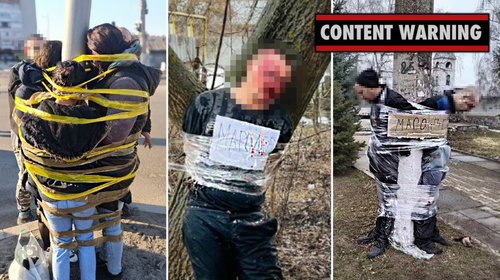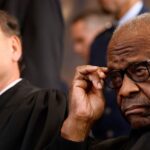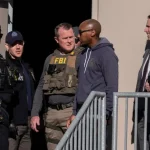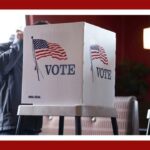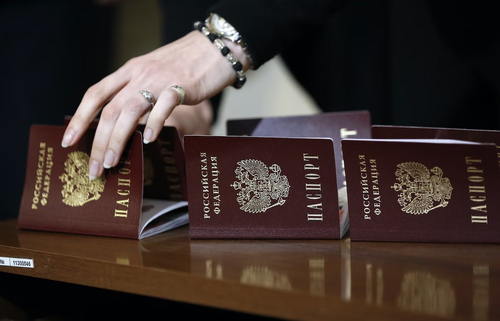
Two weeks ago Ukrainian President Volodymyr Zelensky issued a "10-point plan" for ending the war, which included the demand that Russian troops depart from all of sovereign Ukrainian territory. However, the recent Russian annexation votes for the absorption of Donetsk, Luhansk, Kherson, and Zaporizhzhia territories make the likelihood of peace talks very distant at this point.
On Thursday, Russia again sent a resounding message affirming it doesn't plan to let go of these four eastern oblasts. Moscow confirmed it has issued over 80,000 Russian passports the residents of the territories which were declared part of the Russian federation in September.

"Since the addition ... of the four regions into the Russian Federation, and in accordance with the legislation, more than 80,000 people received passports as citizens of the Russian Federation," Valentina Kazakova, a top Interior Ministry official said.
Currently, as the invasion reaches the full nine-month mark, Russian forces do not yet have hold of 100% of any of the territories. In many areas pro-Kremlin troops have actually been pushed back amid the ongoing Ukrainian counteroffensive.
The United Nations, as well as the Western allies, have consistently condemned the "attempted illegal annexation" of Ukrainian land. Further they have pressed all global nations "not to recognize any changes announced by Russia to borders."
The European Union has also recently vowed to never recognize passports issued in the occupied territories, with Kyiv of course also condemning the 'illegal and invalid' passports. The European Council said earlier in the month: "This decision is a response to Russia's unprovoked and unjustified military aggression against Ukraine and Russia's practice of issuing Russian international passports to residents of the occupied regions."
Meanwhile, a recent Washington Post report has admitted that in these regions, sympathies for Russia among the local Ukrainian population run deep and are more widespread than previously admitted, complicating matters in places like Kherson city, recently recaptured by Ukraine forces amid a broader Russian withdrawal:
But in institutions across this regional capital, from the city council to hospitals and schools, newly restored leaders like Ivanovka are facing a double conundrum. How to rebuild without the thousands of Russia sympathizers who fled? And even more vexing, what to do with those who remain? Thousands in the city held an ambivalence toward the Russians, or even an affinity.
Further the report underscored that "Hundreds, perhaps thousands, of people in Kherson accepted Russian passports in the hope of receiving benefits. Many more accepted thick envelopes of Russian rubles on top of their pay as an inducement to stay in their jobs."
Australian national broadcaster: Ukrainian civilians stripped, tied up and beaten by vigilantes in shocking videos
There have since emerged widespread reports of "revenge" and retribution attacks on suspected 'Russia-sympathizers' by reconquering Ukrainian forces. Likely this will continue especially in retaken areas where much of the citizenry accepted Russian passports and participated in the annexation referendum.
Two weeks ago Ukrainian President Volodymyr Zelensky issued a “10-point plan” for ending the war, which included the demand that Russian troops depart from all of sovereign Ukrainian territory. However, the recent Russian annexation votes for the absorption of Donetsk, Luhansk, Kherson, and Zaporizhzhia territories make the likelihood of peace talks very distant at this point.
On Thursday, Russia again sent a resounding message affirming it doesn’t plan to let go of these four eastern oblasts. Moscow confirmed it has issued over 80,000 Russian passports the residents of the territories which were declared part of the Russian federation in September.

“Since the addition … of the four regions into the Russian Federation, and in accordance with the legislation, more than 80,000 people received passports as citizens of the Russian Federation,” Valentina Kazakova, a top Interior Ministry official said.
Currently, as the invasion reaches the full nine-month mark, Russian forces do not yet have hold of 100% of any of the territories. In many areas pro-Kremlin troops have actually been pushed back amid the ongoing Ukrainian counteroffensive.
The United Nations, as well as the Western allies, have consistently condemned the “attempted illegal annexation” of Ukrainian land. Further they have pressed all global nations “not to recognize any changes announced by Russia to borders.”
The European Union has also recently vowed to never recognize passports issued in the occupied territories, with Kyiv of course also condemning the ‘illegal and invalid’ passports. The European Council said earlier in the month: “This decision is a response to Russia’s unprovoked and unjustified military aggression against Ukraine and Russia’s practice of issuing Russian international passports to residents of the occupied regions.”
Meanwhile, a recent Washington Post report has admitted that in these regions, sympathies for Russia among the local Ukrainian population run deep and are more widespread than previously admitted, complicating matters in places like Kherson city, recently recaptured by Ukraine forces amid a broader Russian withdrawal:
But in institutions across this regional capital, from the city council to hospitals and schools, newly restored leaders like Ivanovka are facing a double conundrum. How to rebuild without the thousands of Russia sympathizers who fled? And even more vexing, what to do with those who remain? Thousands in the city held an ambivalence toward the Russians, or even an affinity.
Further the report underscored that “Hundreds, perhaps thousands, of people in Kherson accepted Russian passports in the hope of receiving benefits. Many more accepted thick envelopes of Russian rubles on top of their pay as an inducement to stay in their jobs.”
Australian national broadcaster: Ukrainian civilians stripped, tied up and beaten by vigilantes in shocking videos
There have since emerged widespread reports of “revenge” and retribution attacks on suspected ‘Russia-sympathizers’ by reconquering Ukrainian forces. Likely this will continue especially in retaken areas where much of the citizenry accepted Russian passports and participated in the annexation referendum.
